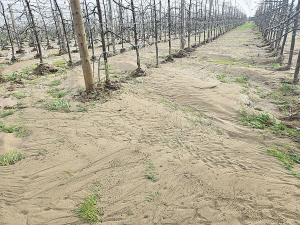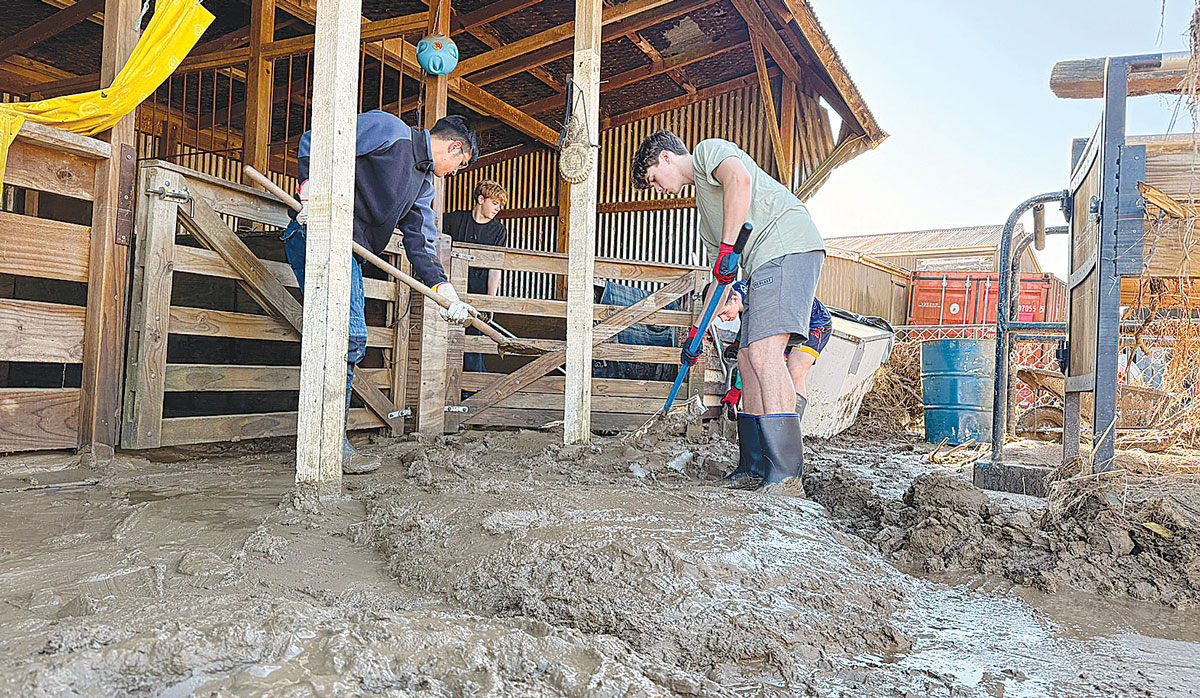Cricket memorabilia up for auction for youth mental health
Jayna Wadsworth, daughter of the late New Zealand wicketkeeper Ken Wadsworth, has launched an auction of cricket memorabilia to raise funds for I Am Hope's youth mental health work.
 Farmers in Nelson and Tasman regions are struggling to get their farms and orchards back up and running. Photo Credit: HortNZ Facebook Page
Farmers in Nelson and Tasman regions are struggling to get their farms and orchards back up and running. Photo Credit: HortNZ Facebook Page
The strain and pressure of weeks of repairing their flood-damaged properties is starting to tell on farmers and orchardists in the Tasman district.
It is now nearly two months since the region was hit by two major flood events in the space of a week and according to Richard Kempthorne, the chair of the local Rural Support Trust, they are getting more calls for help from people who are stressed by dealing with the enormity of the task.
He says many people are snowed under trying to work out what to do to get their farms and orchards back up and running.
"The mental health of people is an issue, and we have now employed a counsellor who can support these people."
These issues are echoed by HortNZ chief executive Kate Scott who says there is a sense of tiredness and people being overwhelmed at the task ahead.
"We have orchardists and growers who are doing their best to get through things on a day-by-day basis, but this is impacting on their mental health.
"HortNZ is doing its best to support them through our grower relief fund and also making them aware of other funding options that are available to them," she says.
Scott says everyone is working very hard in the recovery phase, trying to deal with land that is covered with debris and silt and are doing their best to stay upbeat. She says she knows of some growers who are working hard to get pumps and irrigation systems operational to deal with frosts.
Kempthorne says volunteers are doing a great job helping people to clear debris and silt from properties. He says the student army and Enhanced Task Force Green are going out to individual farms and orchards and working there for about three days at a time before moving on to help others.
"The aim is to give all farmers some help and make sure that no one misses out. It is possible that they will come back to very badly hit farms in the future," he says.
Kempthorne says they also have another group - Taskforce Kiwi - which is made up of people with skills in fencing and use of chainsaws, which the other groups don't have. He says most farms now have road access, and council staff have been out advising farmers about what they can and cannot do to repair damage - especially near rivers.
 |
|---|
|
Richard Kempthorne says volunteers are doing a great job in helping to clear debris and silt from properties. Photo Credit: Nelson Tasman Civil Defence. |
"The cost of repairing roads and rivers will be massive for the council and they will be working through this with central government," he says.
In addition to the help from council, Kempthorne says they have had very good responses from two government departments - the Ministry for Primary Industries and the Ministry for the Environment. He says MFE has been very helpful advising where silt from properties can be dumped.
The repair bill for the rural community will be high but Kempthorne says MPI has been very responsive andf helpful. He says there are two funds that people can access. The first is the general mayoral relief fund which is available to both rural and urban people.
While the recovery is progressing pretty well, Kempthorne says it will be months and in few cases a lot longer before things are back to anything like normal.
Recent weather events in the Bay of Plenty, Gisborne/Tairawhiti, and Canterbury have been declared a medium-scale adverse event.
DairyNZ's chief executive Campbell Parker says the 2024/25 dairy season reinforces the importance of the dairy sector to New Zealand.
A New Zealand agribusiness helping to turn a long-standing animal welfare and waste issue into a high-value protein stream has won the Australian dairy sector's top innovator award.
OPINION: A bumper season all around.
Dairy Women's Network (DWN) has announced that Taranaki dairy farmer Nicola Bryant will join its Trust Board as an Associate Trustee.
Rural Women New Zealand (RWNZ) says it welcomes the release of a new report into pay equity.

OPINION: A mate of yours truly reckons rural Manawatu families are the latest to suffer under what he calls the…
OPINION: If old Winston Peters thinks building trade relations with new nations, such as India, isn't a necessary investment in…